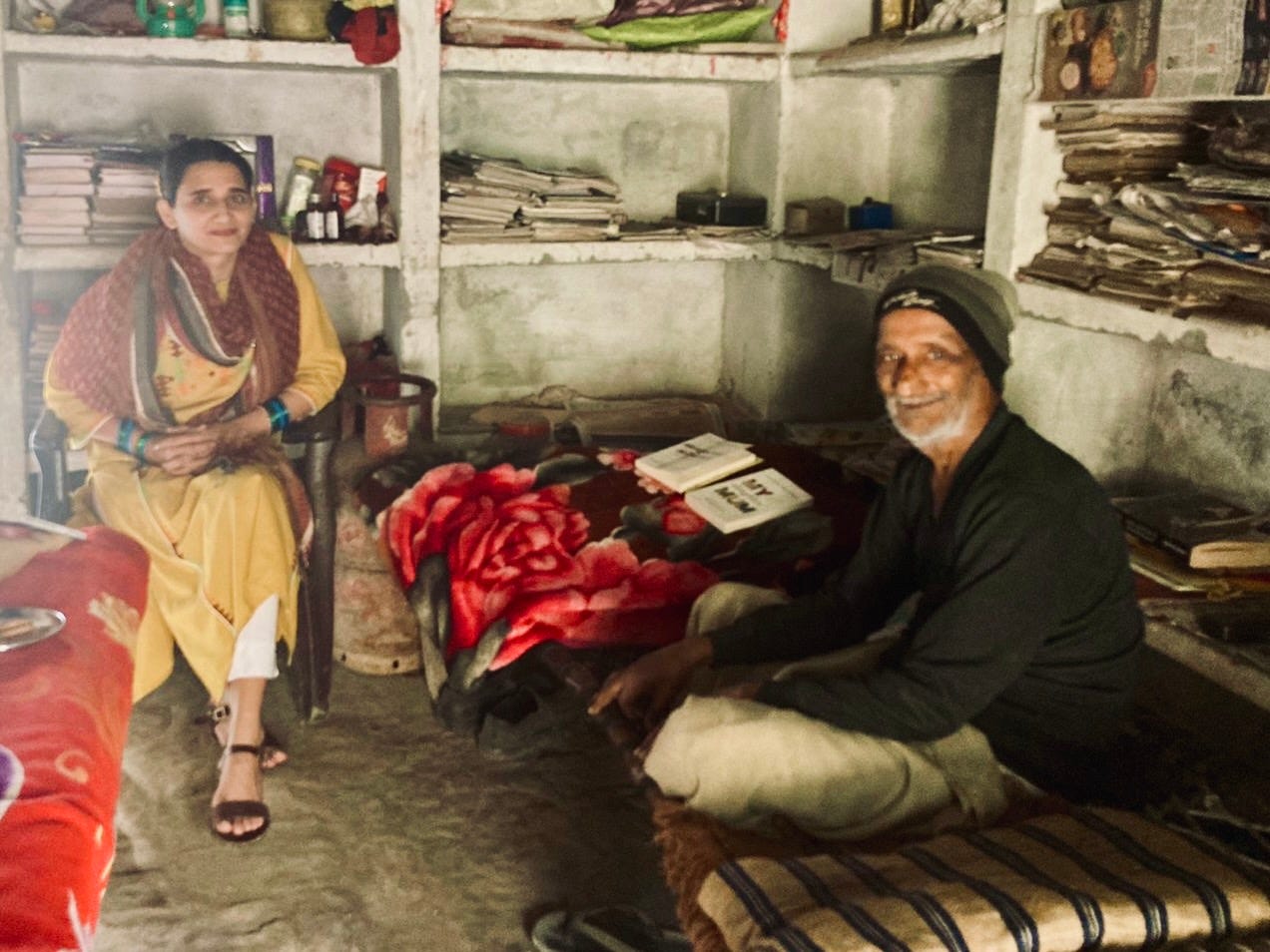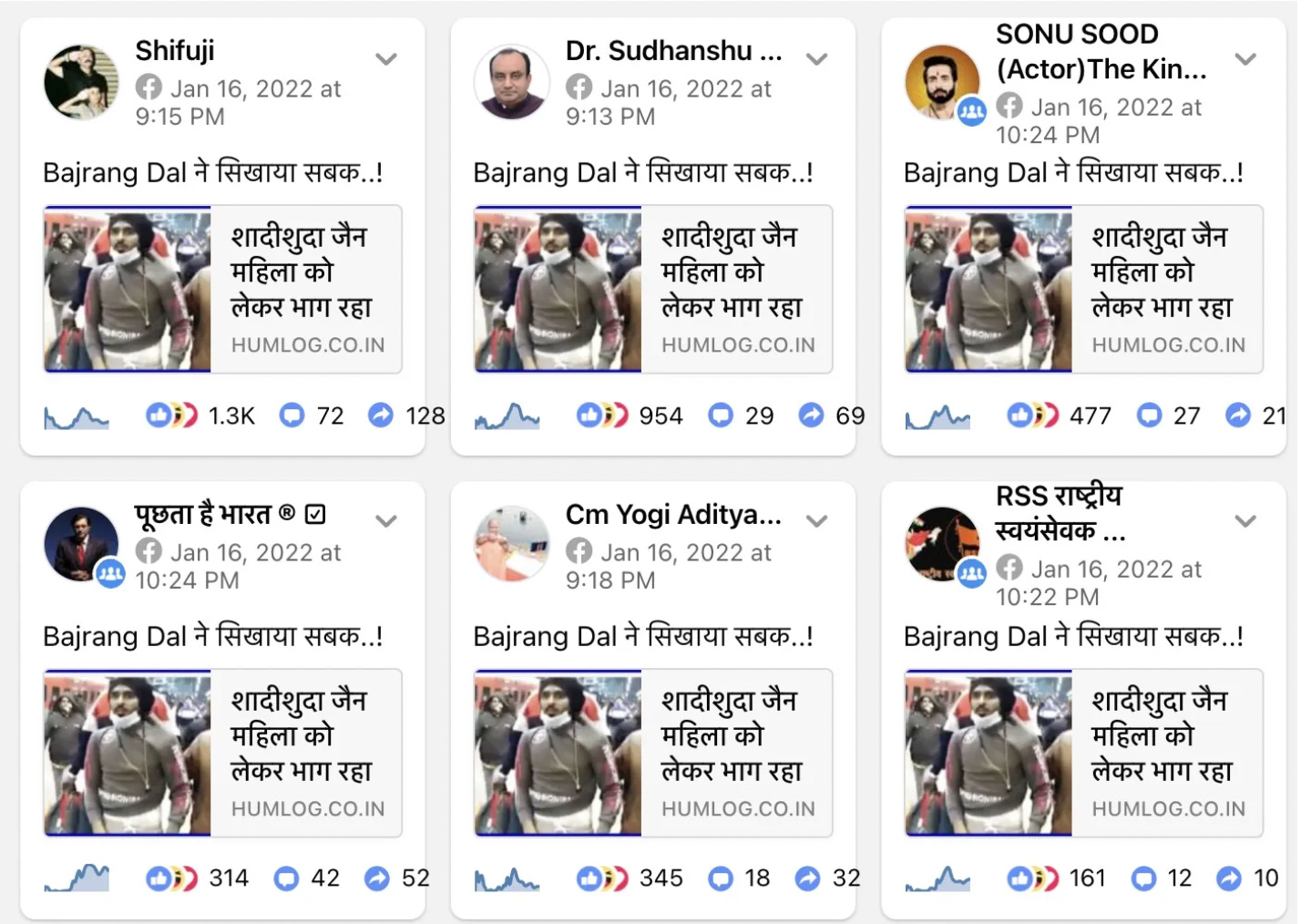Hate On a Train And One Woman's Act Of Courage
“I want to apologise to you," the 80-year-old man said to us. "We could not do for you what you deserve.”
"Mamma, you've been married for ages. Why is he making a big deal about it now,” said my teenaged daughter expressing genuine bewilderment. She was responding to a conversation my husband was reporting to us.
We were in our village in east Uttar Pradesh, visiting my father-in-law in November last year, and my husband had just returned after attending a wedding reception. It was marriage season and after the disruption of the first and second wave of Corona, there were multiple weddings in our village every evening. The children in our extended family were learning to distinguish between the rituals of Hindu and Muslim weddings and what to expect in the buffet spreads of each. The atmosphere could be cacophonous, yet there was an unmistakable air of celebration around us.
It was at one of these weddings that my husband met Jeetendra Nath Rai, an octogenarian friend of my father-in-law, Mirza Ashfaq Beg. Popularly referred to as Ghosh Rai, he is the son of Rishishwar Rai, one of the eight freedom fighters who were shot dead during the Quit India movement when they dared to hoist the tricolour flag of India at Mohammadabad tehsil in Ghazipur district on 18 October, 1942. The martyrs are referred to as Ashta Shaheed (eight martyrs) in these parts and their sons as Shaheed putra – sons of martyrs.
“I want to meet your bahu,” Ghosh Rai said to my husband, referring to me. “I had attended your marriage reception, but I didn’t get a chance to meet your wife. Did you get the book I had left as a gift for you? It was a biography of the Bengali poet, Kazi Nazrul Islam.”
My husband confessed that he hadn’t received the book. It must have got misplaced in the festivities of the grand waleema my in-laws had hosted for us. He told Ghosh Rai that I was in our village home and he would bring me over to meet him in his home in Ghazipur city.
“I have heard a lot about her,” said Ghosh Rai and then changed his tone abruptly. “I want to apologise to you. We could not do for you what you deserve.”
“Please don’t say that…” my husband interrupted.
“It is a bad time, I am sorry we did not work hard enough to create a society that would reject hate. I watch the divisive, communal discourse and rise in hate crimes and wonder where we went wrong. We should be celebrating inter-faith marriages like yours. Instead we have criminalised love.”

An active member of the Socialist Unity Centre of India (Communist), Ghosh Rai has been a grassroots activist and intellectual all his life. When we went to meet him later, he was sitting on his bed, reading a book on Kabir. On the walls next to his bed were bookshelves with his life’s collection of books and diaries. He asked me about my work as an independent film-maker and activist in Delhi. I told him about the farmers’ protests on Delhi’s borders and my role in the Karwan e Mohabbat – a people’s campaign in support of victims of hate crimes. I wanted to reassure him that civil society groups were active and mindful of the challenges of our times.
I remembered Ghosh Rai’s lament and his despair when another video surfaced last week, in which mindless violence and harassment is being meted out to a Muslim man and a Hindu woman who were travelling together on the train. In the video, shared widely on various Facebook pages and Twitter handles, men from the Bajrang Dal are seen roughing up a man on a train and forcing him to get off on the railway station without any explanation of why he has been singled out. The Muslim man and his co-traveller, a woman are later seen being taken to the GRP station on the railway platform. Captions on social media posts featuring the video proclaim that Bajrang Dal men have thwarted one more case of ‘love jihad’ by catching a married Muslim man red handed.

Another video of the incident shows the co-travellers inside a police station where the woman is protesting against being filmed and the disruption of their travel. “This one wrong act of yours has spoiled my life,” she says. “You are making videos and taking photos without once asking me. I’m a teacher, I teach high school students.”
“I am not even talking to you,” says man in response, dismissing her agency to defend herself. “I have nothing to do with you,” he adds.


This incident of intimidation and assault took place on 14 January, 2022 and the GRPF (Government Railway Police Force) inspector of Ujjain, R S Mahajan has clarified that the man and woman of different faiths were family friends travelling from Indore to Jaipur and there was no ‘love jihad’ angle to the case. Both are married to their respective spouses. No case had been registered and everyone had been allowed to leave.
Despite this, the video was released online two days later and the fake news was reported by many online news portals and Hindi newspapers including Amar Ujala and Dainik Bhaskar. It is clear that the people who promoted the video online had mala fide intentions. Not content with demeaning and humiliating the victims, they went ahead and spread the false accusations online.
The targeted violence against inter-faith couples is no longer an uncommon phenomena in India. To extend the violence against friends and acquaintances of different faiths takes it to a whole new level.
Muslims are being attacked on the basis of what they wear, how they pray, what they eat and how they make a living. Vigilante groups like the Bajrang Dal and other self-styled Hindutva outfits are flaunting hate openly and committing violent acts with impunity. The bigger horror is the collusion of sections of the media and the looking away of the administration that allows perpetrators to get away, despite video evidence against them. This has increasingly been successful in its purpose of making Indian Muslims insecure about their safety and their Hindu acquaintances wary of the impact of the violence on them.
As I dealt with my own indignation, I was reminded of the mournful words of Jeetendra Nath Rai, who has dedicated his life towards trying to create the just, equitable society that his father had laid down his life for. In his final years, he has begun to worry that his life’s work is being undone. I want to tell him that all is not lost yet.
Even as I watch the video with disgust and dread, I draw strength from the woman who stands up for herself fearlessly and continues to lash out at the goons who want to mute her voice and dismiss her humanity. “I am an adult,” she asserts in the police station. “I know right from wrong.”
With that one line, she speaks for every Indian who believes in social and communal harmony and in the power of the people and the Constitution of India that guarantees them their rights. Collectively we need to push back against hate, protect those who are being victimised and empower each other with our own acts of courage and solidarity.
This article was first published here on TV9.com: 'Love Jihad': Attack on Muslim man travelling with Hindu woman shows intent to normalise hate






Wonderfully well written. Make me want to write like that.